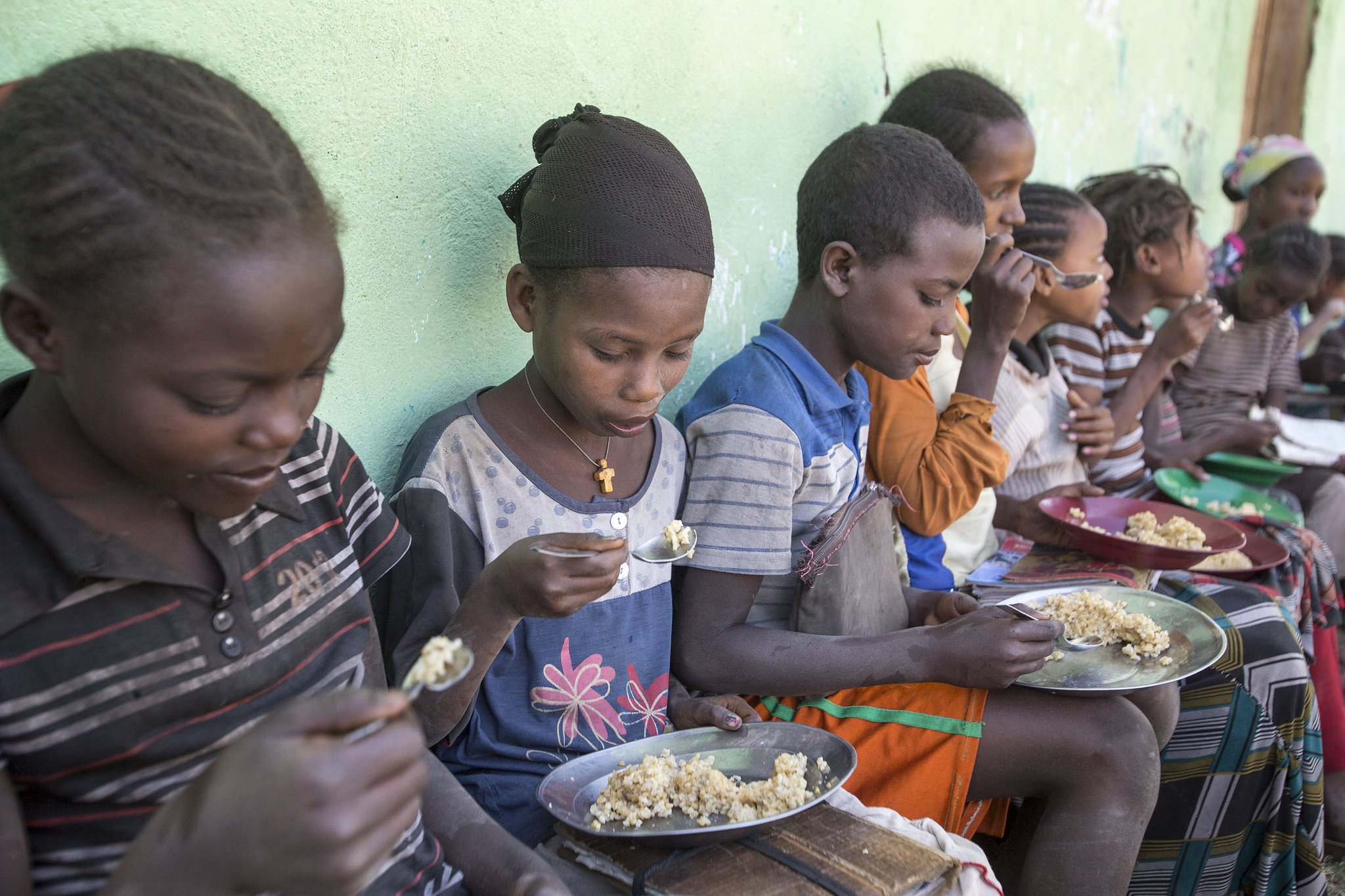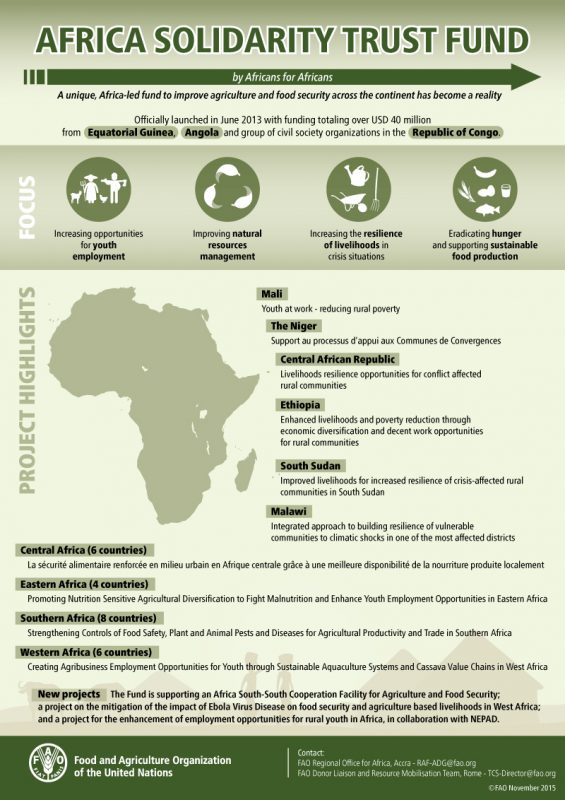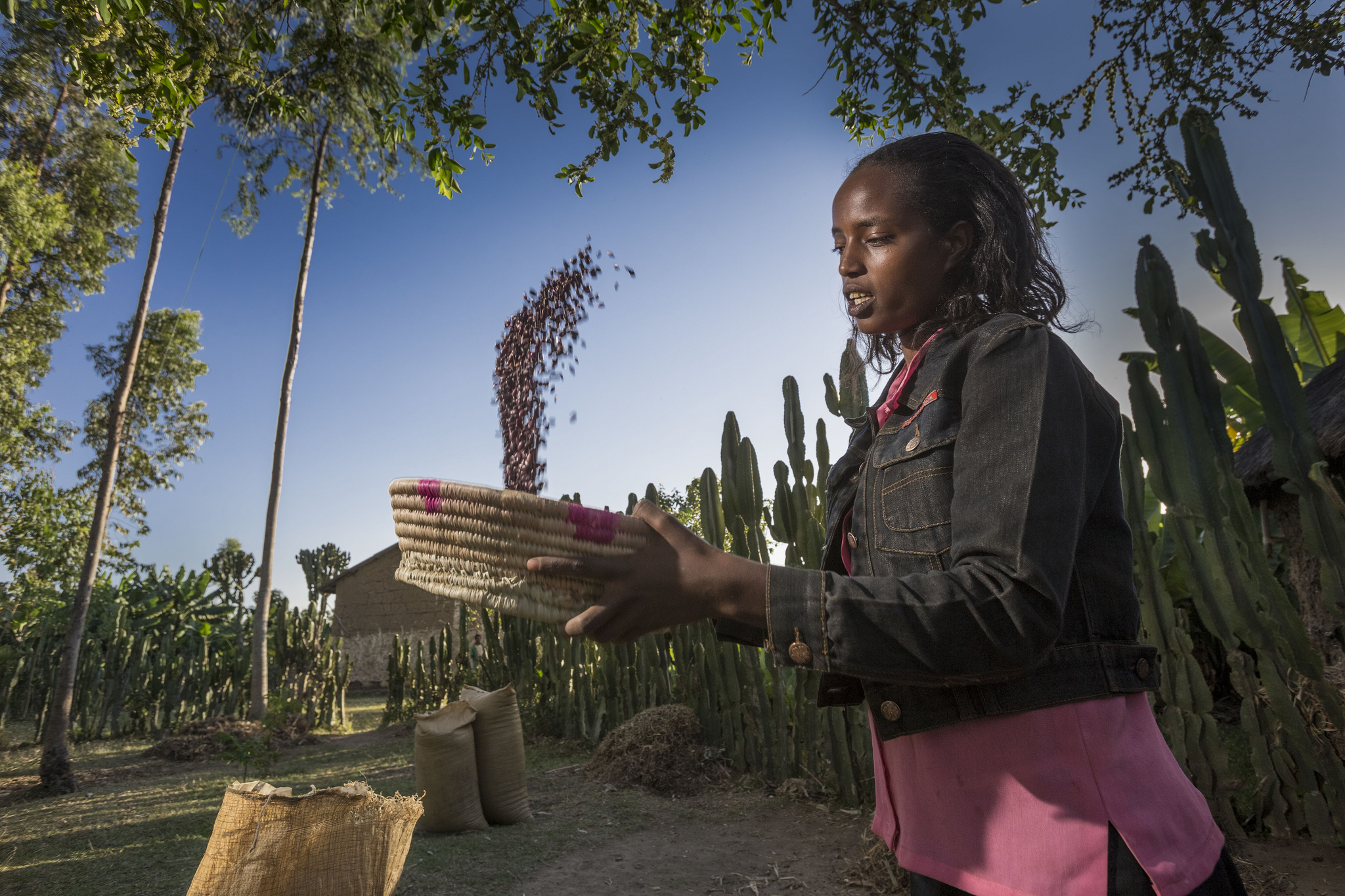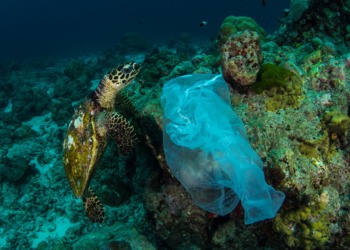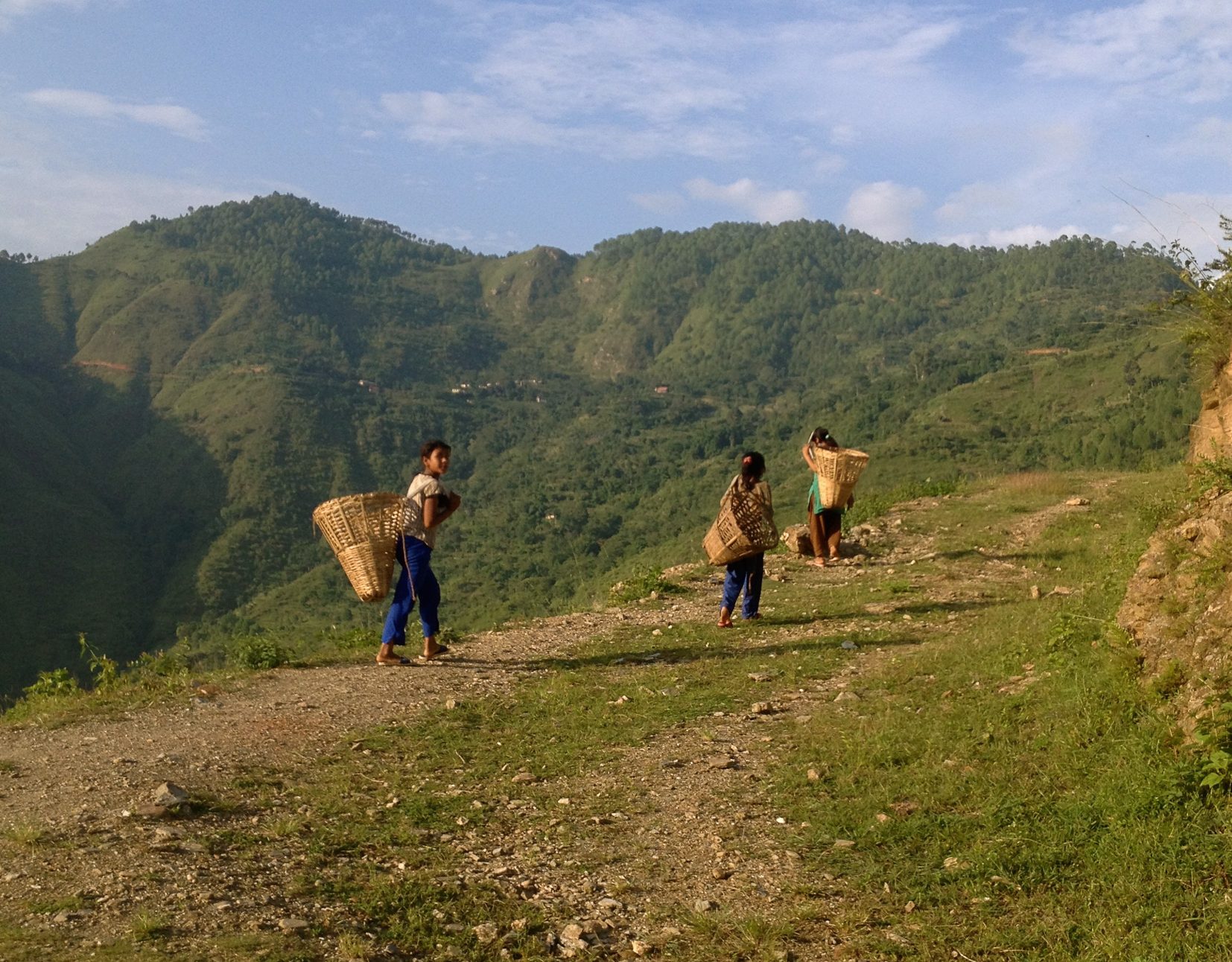The Strategic Value of Unearmarked Funds
In 2013, FAO launched the Africa Solidarity Trust Fund, a unique Africa-led initiative to improve agriculture and food security across the continent.
The fund aims to pool resources from Africa’s strongest economies and use them across the continent to implement initiatives to boost agricultural productivity and food security in the region.
With the FAO Multipartner Programme Support Mechanism (FMM), the African Solidarity Trust Fund is one of FAO new pooled and unearmarked funds.
[Editor’s note about un-earmarked funding, a.k.a. “core funding”: Over the past decade, there has been a strong move within the United Nations towards more flexible and open-ended funding, with no predetermined aid projects or programs imposed by donors. To ensure the funds are properly managed and aid objectives are achieved, overall goals and monitoring mechanisms are set up and are made an integral part of “multi-partner” programmes and funds in the UN system.]
“By Africans for Africans”
In Africa, there is a growing commitment of countries not only to improving their own food security, but that of their neighbors as well. The Africa Solidarity Trust Fund is a concrete example of Africa’s willingness to work together to guarantee the food security of the entire continent. The Fund received contributions from Equatorial Guinea ($30 million), Angola ($10 million) and a symbolic contribution by civil society organizations in the Republic of the Congo.
It is governed by a Steering Committee currently consisting of Equatorial Guinea, Angola, the Chair of the Africa Group, the Chair of the FAO Regional Conference for Africa, the African Union and the FAO Secretariat.
The contributing countries are the ones managing the funds. All financial contributions are administered by the FAO representations in Africa, in accordance with FAO rules and regulations which guarantee full transparency and accountability.
Regional dimensions
The Africa Solidarity Trust Fund provides funding at the national level to 38 countries (out of the 54 countries on the African Continent but also to sub- regional and regional programmes). Central African countries receive support to strengthen food security in urban areas. In Eastern African countries, the focus is on promoting nutrition sensitive agriculture to fight malnutrition and enhance youth employment opportunities. Countries in the southern Africa sub region receive funding to strengthen controls of food safety threats, plant and animal pests for agricultural productivity sand trade. The Africa Solidarity Trust Fund promotes decent employment opportunities for youth through sustainable aquaculture and cassava value chains in West Africa.
The fund also backs a continental intervention to support African rural youth and their future through the New Partnership for Africa’s Development (NEPAD) and a facility for South-South Cooperation from Africa to Africa, to allow a better sharing of knowledge and development solutions within the continent.
Related article: “THE STRATEGIC VALUE OF POOLED FUNDS IN DEVELOPMENT”
Delivering results across the continent
Since its inception, the Fund has provided financing for projects to support building resilience for conflict affected rural communities, reducing rural poverty through youth employment opportunities and building best practices to increase crop and livestock production. A typical project has an investment size of USD 2,000,000. Investments are already bearing their fruits.
In Ethiopia a recently concluded project has demonstrated remarkable successes by promoting an integrated approach to improving food/nutrition security and poverty reduction through livelihood diversification and capacity development. The project promoted integrated production of cereals, legumes and vegetables which helped food-insecure households to meet their food and nutrition needs. The project provided training to extension staff and beneficiary farmers on techniques that promote sustainable and nutrition sensitive agriculture, these included beekeeping, vegetable and fruit production, dairy cow feeding and management poultry management.
Photo Credit: Flickr/FAO News
In Sierra Leone, a project supported post Ebola recovery of the agri-business sector. Farmers were provided critical agricultural inputs such as seeds, fertilizers. As a result, the vegetable production was increased by over 40 percent and yields doubled when compared to the production during the Ebola period. During the disease period, processing of agricultural products was almost interrupted. The project supported agricultural processing units and trained machine operators. Agricultural Business Centers could become more effective and efficient and earn more resources. The additional income was used to contribute to Village Savings and Loans Association (VSLA) funds and to pay school fees and hospital bills among other needs. Social cohesion that was lost during the outbreak of the EVD, as a result of quarantine measures instituted by Government, is being re-established again.
African countries are taking the lead in building the Zero Hunger Generation. With the solid technical knowledge of FAO, African resource partners have helped to strengthen the region from within with financial resources and expertise through the south-south cooperation modality. Exchange visits, study tours have been promoted amongst several of the Africa Solidarity Trust Fund beneficiary countries to foster the transfer of knowledge and technology from one African country to the other.
Importance of pooled funds
The Africa Solidarity Trust Fund was set up as a Fund where African countries provide funding in an unearmarked manner to support other countries. Like the FAO Multi Partner Programme Support Mechanism (FMM), these innovative funding mechanisms have a strategic value. They stimulate innovation and enable FAO to build the knowledge and expertise to address emerging issues. They also leverage additional funding and stimulate new partnerships, two necessary conditions for progress on the road to the SDGs.
Recommended reading: “11 GROUPS FIGHTING TO END FOOD WASTE AND FEED THE WORLD”


